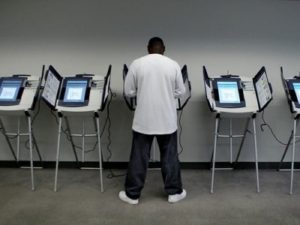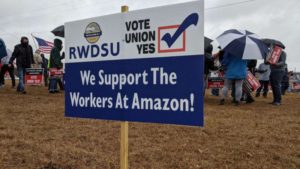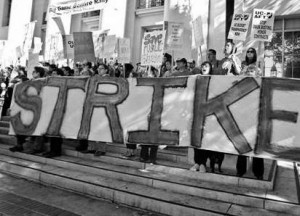Podcast: Play in new window | Download
Chris Hedges: Social Change And Democracy 2022
You can’t have organized activity for social change without democracy. Social change and democracy are bound up with one another. But America is not a democracy. This is by design. It was never intended to be. The founding fathers – there were no founding mothers – wrote a document 245 years ago in Philadelphia that excluded more Americans than it included.
The Supreme Court ruled in the Citizens United case that corporations are people entitled to free speech rights. So they can give as much money as they want to political campaigns. Last month an industrialist gave $1.6 billion to the Republicans. Like Bob Dylan wrote, “money doesn’t talk it swears.“ It is impossible to have a democracy in a country like ours with such vast income and wealth disparity.
The Democratic Party and the Republican Party have a lock on the political process. It is nearly impossible to start a third-party. When Ralph Nader ran the Democrats did everything they could to stop him, launching many lawsuits trying to knock him off state ballots.
Since its founding, the ever-growing effects of unlimited money in elections, the partisan gerrymandering of legislative districts, the fraudulent removal of poor and minority voters from voter registration rolls, reduction in the number of voting locations in minority districts, the unfair advantage given to Canada is favored by corporate America, including America’s corporate media, all combine to leave us with a very unfair and very undemocratic system of governance in America
Guest – Chris Hedges, the most penetrating journalist we have. He once worked for the New York Times and even won a Pulitzer Prize. But he was forced out. He had a show on our RT which was closed down by our government and some 600 of his show “On Contact” were taken off of YouTube.
—-
The State of Labor Unions And Recent Worker Strikes
For decades now only about 11% of workers in America have been members of unions, whereas previously more than 35% were union members. Various pieces of pro-management legislation and court opinions caused this diminution in union membership and, as a consequence, a weakening of the rights of American workers. But in recent years, as a result of militant fight back efforts by exploited workers in many industries, unions have once again been having some success in organizing efforts at various workplaces, like Amazon, Starbucks, Apple, and Trader Joe’s.
But federal and state laws still create an up-hill fight for those seeking to organize workers into unions, and to win good labor contracts. So today we ask: do these few but growing number of recent labor union victories truly represent a new day for American workers and the unions that serve them? Do these localized labor victories suggest that more and bigger victories for workers are now within reach? Or, have these recent victories been simply exceptions to the still dismal overall state of union organizing in America? Are either of the two capitalist political parties sufficiently committed to advancing the right of workers to organize unions, or is an independent political movement or party needed to make significant union/worker gains? And what about the pending threat of a nation-wide railway worker’s strike? And if the railroad companies and their workers cannot reach a negotiated settlement acceptable to the railway workers, could President Biden step in and use the Railway Labor Act in an effort to prevent a railway strike with its devastating consequences for the U.S. economy?
Guest – Alan Benjamin, long-time union organizer and workers’ advocate. A leader in his own union, he has served on the Executive Council of the San Francisco AFL-CIO Labor Council. He is also one of the principal organizers of the organization known as Labor and Community for an Independent Party, or LCIP.
—————————————-




